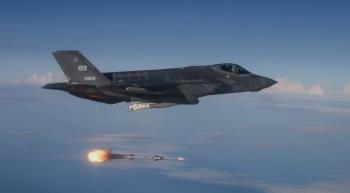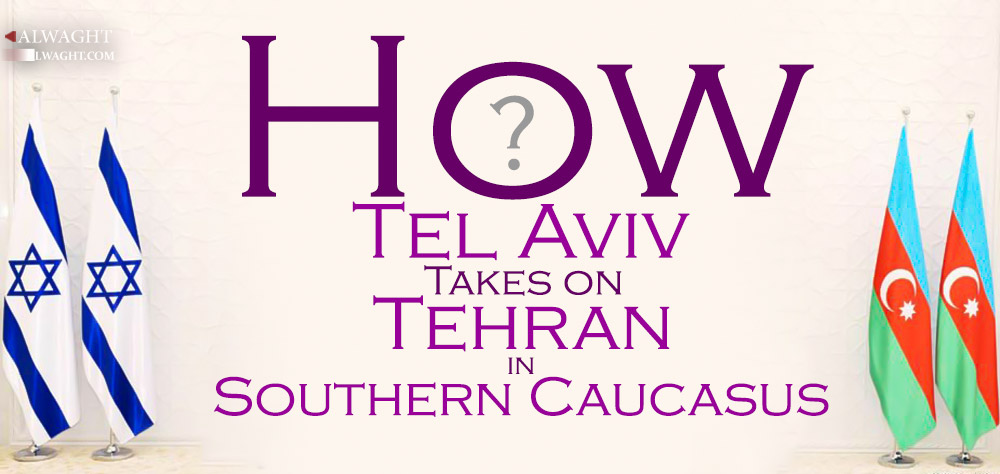Alwaght- From geopolitical and geostrategic aspects, Southern Caucasus is seen as one of the most important regions of the world. As a buffer area between Russia, Europe, and the Arab West Asia, Southern Caucasus following collapse of the Soviet Union faced a geopolitical vacuum, and so caught political, security, and economic attention of the international players. After the Soviet Union's decline, the Israeli regime sought allies and friends among the newly-founded Southern Caucasus republics in a bid to boost relations with the region.
As a significant identity antipode of Iran, the Israeli regime seeks its own strategic goals by entry in the region. Following interests by Israeli regime in Southern Caucasus region means harm security and presence of Iran there, something that requires Tehran’s close watch of Tel Aviv’s moves for appropriate reactions.
The Israeli regime has always been affected by its geological position, conflicts with Arabs, and legitimacy and recognition crisis, especially among the Arab states.
Tel Aviv's leaders from the very beginning based regime’s policy on two principles: presence in the surrounding areas, and trying to break political and diplomatic isolation. They put high on agenda forming a regional coalition.
Tel Aviv entered Southern Caucasus to realize goals that were part of a wider Israeli security strategy. The goals that were political, economic, security, and strategic.
Politically, the Israeli long-term strategy pushes Tel Aviv to seek out new allies in Caucasus to help get out of isolation. Branded as illegitimate regime in region, particularly by Arab states, since its foundation in 1948, the Israeli regime looked out of the region to secure friends for strong reliance.
Tel Aviv also did its best to hold relations with countries from the region like Turkey and Azerbaijan to remove the Islamic aspect of pro-Palestinian anti-occupation fights.
Furthermore, Tel Aviv strengthened ties with Caucasian states to block expansion of Iran's relations with them. In fact, Israeli regime seeks preventing rise of an anti-Israeli bloc with international influence.
The Israeli leaders see relations with Caucasian countries as an opportunity to stop penetration of Iranian governing style in the region.
At the same time, Tel Aviv wants to improve conditions of the Jewish people in Caucasus or pave the way for their immigration to the Israeli regime.
Security is another significant goal for Tel Aviv. Aiming to confront Iran as its key opposing force, the Israeli regime attempts to get toehold in Caucasus. It made anti-Iranian moves, including establishing eavesdropping intelligence bases near Iran borders. These bases helped spy on the Islamic Republic or got the readiness to launch strikes on the Iranian territory, something which was supposed to relax Israeli concerns and increase Tehran’s vulnerability.
Another reason for relations with the Caucasian countries is economy. Tel Aviv seeks making the best out of the markets in both the Western countries and Caucasus. It invests in oil production, farming, and communications sectors.
The relations with Caucasus helped the Israeli regime get cheap oil, invest in agricultural sector, export its products, block Iran's incorporation in regional cooperation, and enervate the neighboring countries' sanctions.
One of the aspects of the Israeli foreign policy in Caucasus is a focus on the Jewish civilization there. The issue on the one hand has a religious and ideological face and on the other hand highlights the fact that any cultural influence in the region can serve Tel Aviv's political and security objectives.
Economic and political factors facilitating Israeli presence in Southern Caucasus
The domestic conditions of the Caucasian republics and the crises they observed during their nation-state building process have supported the Israeli presence in the region. As new states, they lacked a good experience of governing and administrating, so they refered to the Israeli experiences for administration.
Additionally, it appears that the economy was the most significant and efficient instrument for Tel Aviv to get influence in Caucasus. The Israeli regime took advantage of the weak economic structures of the regional republics to build an economic bloc and integration to help endogenous growth and development. Tel Aviv used the weak point of these republics as its own strong point to build some economic potentials for them. A feel of need made them get close to the Israeli regime.
The Israeli economic potentials included mechanized farming, production, minerals and energy technologies.
Security outcomes of Israeli presence in Southern Caucasus
Israeli presence in Caucasus and expansion of influence in political, economic, security, and cultural structures of the region over the past two decades have significantly affected the opportunities and threats of Iranian Foreign policy. The issue is especially important as tensions between Tel Aviv and Tehran intensify in the shadow of the American-Israeli greater Middle East plan that endangers the Iranian national security.
Israeli activity and presence in Caucasian republics, particularly Azerbaijan, has chilled their political relations with Tehran despite identity, cultural, lingual, and historical commonalities.
Another set of threats that influence the Iranian national security are of economic nature and so carry security outcomes for Tehran. For example, as the Israeli regime deepens influence in Caucasian republics, the room for economic partnership and activity is more limited for Iran. The markets shift from Iranian products and services to those from the Israeli regime.
Furthermore, boost of Israeli companies' work in southern Caucasus bars Iran from finding new economy opportunities. For example, the Israeli and American insistence on shift of course of Baku-Tbilisi-Ceyhan pipeline more than ever has weakened the Iranian geopolitical position.
The threats are not limited to economic or political ones. Social and cultural threats are also results of the Israeli influence in Caucasus. Tel Aviv wants to create a secularist atmosphere in the Azeri community. It, additionally, paints Iran as a totalitarian and extremely religious country. Digging gaps between Iran and Azerbaijan is another Israeli objective. Tel Aviv supports pan-Turkist and pan-Azeri groups and so provokes ethnic sentiments of Iran's maintly Turk-populated northwestern provinces.
The Israeli policy for support of separatist groups in Azerbaijan as well as bolstering political, economic, cultural, and military relations with Baku as a neighbor to Tehran has activated secessionist groups in Iran and so fueled secessionism across the region, something posing direct security threat to the Islamic Republic.



























